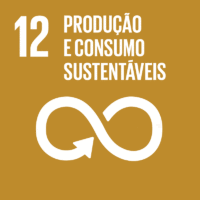Ciência_Iscte
Publicações
Descrição Detalhada da Publicação
A study on balanced scorecard and its impact on sustainable development of renewable energy organizations; A mediating role of political and regulatory institutions
Título Revista
Risks
Ano (publicação definitiva)
2021
Língua
Inglês
País
Suíça
Mais Informação
Web of Science®
Scopus
Google Scholar
Esta publicação não está indexada no Overton
Abstract/Resumo
Organizational strategic programs are continuously evolving and gaining the attention of policy makers in order to construct organizations’ ecological and socioeconomic systems. The purpose of this study is to examine the relationship between the balanced scorecard (BSC) and sustainable development involving the mediated effect of political and regulatory influence. To achieve the core objectives of the research, the quantitative (positivism) research method is applied. The goal of the current research is made possible through the quantitative method because of its objective nature of reality. A total of 320 questionnaires were distributed among the different levels of managers; 280 respondents returned the questionnaire. The data are analyzed through a modern statistical tool called Smart-PLS, Partial Least Squares (PLS) is high graphical user interference software that is used to calculate Structural Equation Modeling (SEM) through PLS path modeling. Factor analysis is conducted to eliminate the variables that have no contribution and to reduce the variables to obtain better results in regression. The implications are for energy organizations that are struggling to deal with sustainable development and these tools can help them to achieve their sustainability goals. The study concludes that the adoption of BSC is essential to ensure sustainable development regardless of its challenges. Moreover, consideration of meta-constitutional rules as political influence is important to understand and address in order to mitigate financial loss. In nutshell, the use of BSC is highly recommended to eliminate the routine problems and to ensure environmental sustainability.
Agradecimentos/Acknowledgements
--
Palavras-chave
Balanced scorecard,Political and regulatory influence,Sustainable development and environmental sustainability
Classificação Fields of Science and Technology
- Economia e Gestão - Ciências Sociais
Registos de financiamentos
| Referência de financiamento | Entidade Financiadora |
|---|---|
| UIDB/00315/2020 | Fundação para a Ciência e a Tecnologia |
Contribuições para os Objetivos do Desenvolvimento Sustentável das Nações Unidas
Com o objetivo de aumentar a investigação direcionada para o cumprimento dos Objetivos do Desenvolvimento Sustentável para 2030 das Nações Unidas, é disponibilizada no Ciência_Iscte a possibilidade de associação, quando aplicável, dos artigos científicos aos Objetivos do Desenvolvimento Sustentável. Estes são os Objetivos do Desenvolvimento Sustentável identificados pelo(s) autor(es) para esta publicação. Para uma informação detalhada dos Objetivos do Desenvolvimento Sustentável, clique aqui.

 English
English




